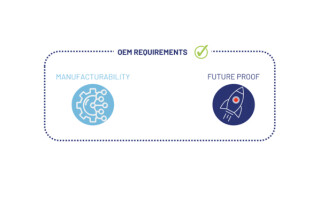Makerspaces: DIY together
June 01, 2014

As the maker movement continues to grow, physical makerspaces are cropping up around the globe – increasingly with backing from universities, co...
Taking DIY projects to the next level sometimes takes a bit more than what you've got in your budget and home workshop. Online maker communities provide vast amounts of information at your fingertips and a worldwide community of other makers, but they're not the only way to learn or find other DIY partners.
Community centers called makerspaces (also called hackerspaces) are local maker communities that provide workspace, tools, and education centered on making and DIY projects. Beginning in Europe in the 1990s and building popularity over the last decade, there are now hundreds of makerspaces around the globe. Many incorporate membership fees and dues to cover costs, but are still much cheaper than paying thousands of dollars or more for your own equipment.
Makerspaces come in all sorts of configurations. Some are small volunteer-based groups with educational workshops, donated tools, and a small workspace, while others are full-time university-, city- and/or corporation-partnered organizations with a big staff and millions of dollars worth of equipment on hand.
HeatSync Labs (www.heatsynclabs.org), formed in 2009 with a mission of education and collaboration, is a 501(c)3 nonprofit, community-driven workspace in Mesa, AZ with workshops, tools, and public hours on weekdays between 7 p.m. and 10 p.m. HeatSync is run and funded on an entirely volunteer/donation basis with tools available including hand tools, woodworking, metalworking, and milling tools, and a 3D printer.
Though it has its own online components, member Nate Plamondon says, "HeatSync Labs allows members and visitors to collaborate in ways that exclusively online maker communities can't replicate." And HeatSync has a diverse group of makers to meet.
"We have a couple small companies that regularly conduct business/prototyping/research in our facility," Plamondon says. "We have regular meetings for kids and have mentored robotics teams. Many of our members are professional engineers or scientists in some respect or another, including software, electronics, and aerospace."
Membership runs from $25 to $100 a month, though anyone can come during public hours. Its 80 paying members (and general community of more than 400) are encouraged to start events and improve HeatSync as they see is needed, as well as pool resources to get new tools or bring plans to life in what they call a "do-ocratic" community; with no staff, it's all up to the community to make things happen.
TechShop (www.techshop.com), formed in Menlo Park, CA in 2006, is a group of eight membership-based fabrication studio makerspaces across the country (with two more in planning stages). They include a typical layout and set of equipment, including milling machines, laser cutters, plastics working equipment, an indoor automotive work bay, a 3D printer, and design software. TechShop facilities have been the birthplace of some popular inventions, such as the Square mobile device-based credit card reader.
TechShop opened a 15,000 square foot space in Chandler in partnership with the Arizona State University Chandler Innovation Center in November 2013. With 15 employees, up to 30 part-time instructors, and more than $1 million in machines, tools, and software, members can learn and make nearly anything at the facility, open daily 9 a.m. to midnight.
Chandler is home to tech firms like Honeywell, Intel, and Microchip Technologies, a thriving art community, university support, and a growing student population, which the Chandler TechShop's General Manager Jon Barbara says is a great mixture for makerspaces, and a reason why TechShop opened a facility there.
"[Online maker communities] tend to be better suited for quick answers," Barbara says. "In a physical makerspace, you gain access to members of diverse backgrounds, easy means for collaboration, and, of course, access to tools, computers, and a creative environment."
In five months of operation, this TechShop has around 600 members, a third of which are students, with the rest split among artists, inventors, engineers, and hobbyists. Membership is $175 per month for individuals (with discounts for recurring or yearly subscriptions), $95 for students, with corporate and other membership types; nonmembers can also take classes.
"We've seen some really cool things happen over the first few months, including multiple Kickstarter campaigns, and the growth of a business that scored a multimillion dollar deal just after CES," Barbara says.





